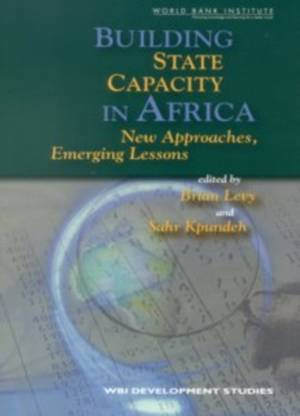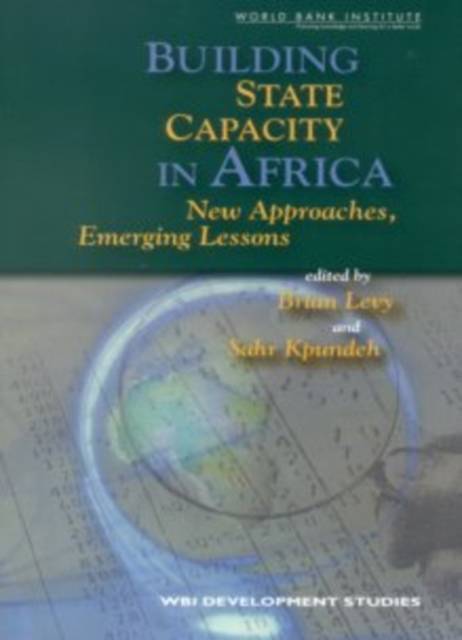
Bedankt voor het vertrouwen het afgelopen jaar! Om jou te bedanken bieden we GRATIS verzending (in België) aan op alles gedurende de hele maand januari.
- Afhalen na 1 uur in een winkel met voorraad
- In januari gratis thuislevering in België
- Ruim aanbod met 7 miljoen producten
Bedankt voor het vertrouwen het afgelopen jaar! Om jou te bedanken bieden we GRATIS verzending (in België) aan op alles gedurende de hele maand januari.
- Afhalen na 1 uur in een winkel met voorraad
- In januari gratis thuislevering in België
- Ruim aanbod met 7 miljoen producten
Zoeken
€ 46,95
+ 93 punten
Omschrijving
The World Bank and other donors are fully committed to modalities of development support that put countries in the driver's seat, with the poverty reduction strategy process-prepared by national governments, on the basis of close consultation with civil society-providing the framework for that support. An effective poverty reduction strategy process and a productive partnership can be built only on a platform of strong public capacity: capacity to formulate policies; capacity to build consensus; capacity to implement reform; and capacity to monitor results, learn lessons, and adapt accordingly. Building the requisite capacities turns out to be a formidable challenge. For these reasons, enhancing the capacity of African states has risen to the top of the continent's development agenda. In recent years, a number of African governments have moved forward with new-style programs to build public sector capacity. Building State Capacity in Africa aims to share some of the lessons for the design and implementation of public sector capacity building that are emerging from this new generation of operational practice. It also exemplifies an increasingly collaborative way of working within the World Bank Group. This book draws on in-depth Bank research and research projects were done in collaboration with African development partners and scholars. The editors contend that this model of working together constitutes the most effective way for the World Bank Group to contribute, in its role as a knowledge Bank, to the challenge of building state capacity in Africa.
Specificaties
Betrokkenen
- Auteur(s):
- Uitgeverij:
Inhoud
- Aantal bladzijden:
- 392
- Taal:
- Engels
- Reeks:
Eigenschappen
- Productcode (EAN):
- 9780821360002
- Verschijningsdatum:
- 27/09/2004
- Uitvoering:
- Paperback
- Formaat:
- Trade paperback (VS)
- Afmetingen:
- 167 mm x 236 mm
- Gewicht:
- 684 g

Alleen bij Standaard Boekhandel
+ 93 punten op je klantenkaart van Standaard Boekhandel
Beoordelingen
We publiceren alleen reviews die voldoen aan de voorwaarden voor reviews. Bekijk onze voorwaarden voor reviews.









